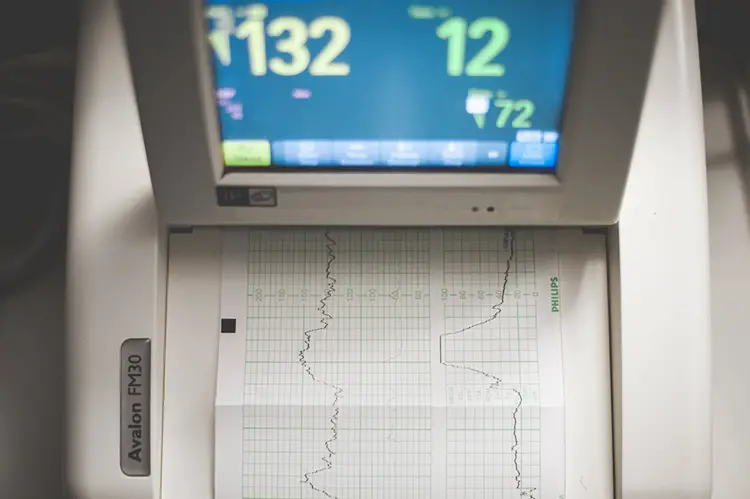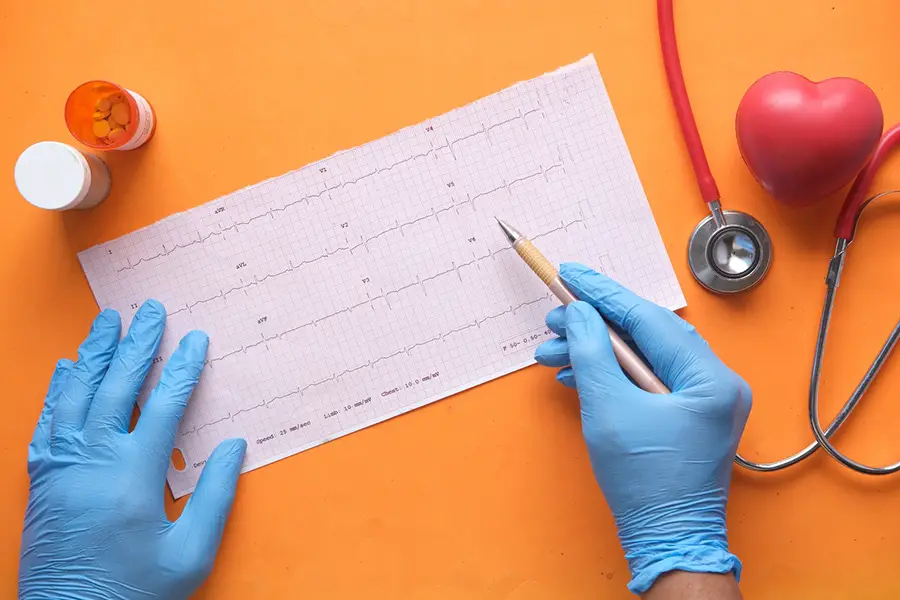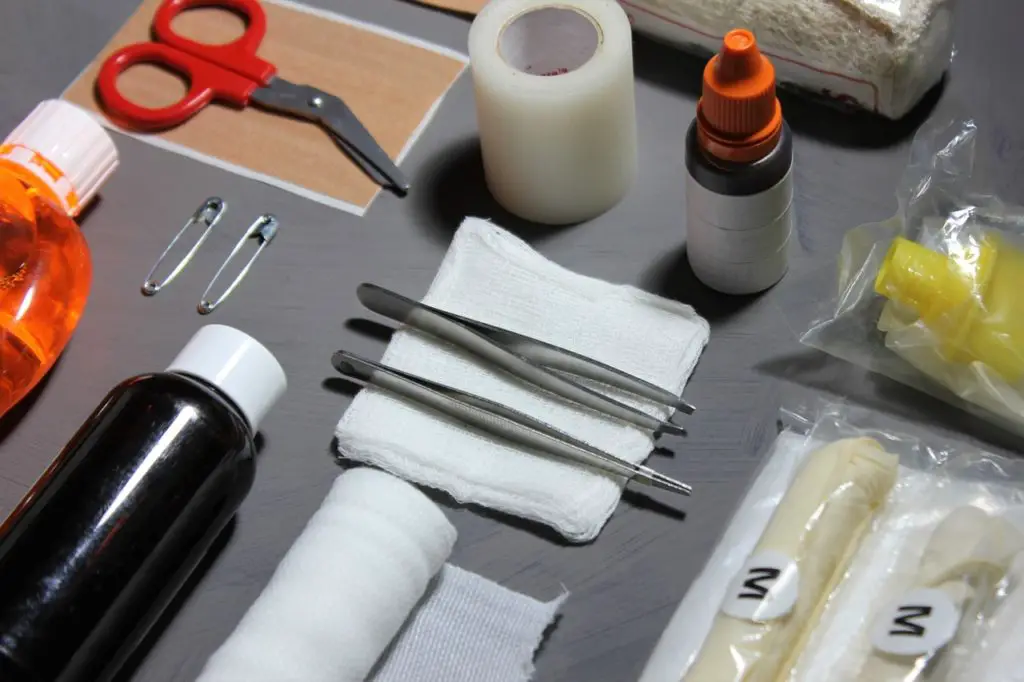Have you been told by your doctor that you need to get an EKG? There’s no need to worry! An EKG is a quick, non-invasive and painless procedure that is very common. And the fact that your doctor has ordered one doesn’t necessarily mean that you have a heart condition; it may just be for precautionary screening. This article will explain what an EKG is, what an EKG can detect, and what to expect during your visit.
What is an EKG?
An EKG (electrocardiogram) records the electrical activity in the heart. The heart muscle pumps when an electrical signal travels from the top of the heart to the bottom of the heart. This electrical signal causes the heart to contract. An EKG measures this electrical activity through strategically placed sensors (called electrodes) on the chest and limbs. It’s a pain-free procedure because the electrical current that is already in your body is what’s measured, and no new currents are introduced into the body.
What’s the difference between an EKG and a ECG?
ECG and EKG mean the same thing and are used interchangeably. EKG stands for elektrokardiogramm, which is the original German word for the scan. ECG stands for electrocardiogram, which is the English term for the same test procedure.
What can an EKG show you?
An EKG will show you and the medical staff how fast your heart is beating, your heart’s rhythm, whether or not it’s beating too fast or too slow, and if there is stress or strain on the heart. It does so by displaying a graph (either on paper or digitally) that shows the voltage associated with each heartbeat over a given time. An EKG will show:
- The patient’s heart rate
- The patient’s heart rhythm
- Where an abnormality in blood flow may be happening
An EKG is often the first in a set of tools used to analyze heart function. Additional tests may be ordered depending on the results of the EKG.

What can an EKG detect or diagnose?
Using the measurements of heartbeat and rhythm, an EKG can detect potential heart problems. An EKG won’t explicitly diagnose a problem – the test results need to be interpreted by your doctor to make any diagnosis. An EKG can help your doctor diagnose:
- Arrhythmia, or an irregular heartbeat.
- If the patient has had a heart attack
- Enlargement of the heart chambers
- Coronary heart disease
- Heart failure
Can an EKG show if you had a heart attack?
Yes, an EKG can show if a person is having, or has had, a heart attack.
Can an EKG show if you’ve had a stroke?
No, but an EKG may be requested to investigate underlying issues that may have led to a stroke.
Can an EKG show lung problems?
No, but if you’re visiting a doctor because you’ve reported shortness of breath, it may be a sign of a heart-related issue and an EKG would then be warranted.
When is an EKG normally needed?
There are many reasons why a doctor may order an EKG. An EKG may be ordered:
- As part of routine checkup
- If you’ve complained of chest pain
- If you’ve felt an irregular heart beat or a fluttering of your heart
- If there is a history of family heart disease
- If you have a pacemaker or are on heart medications
- Any other symptoms associated with a heart attack or heart disease
- As a screening tool prior to a surgery
Don’t assume that if your doctor has ordered an EKG that there is a problem.
What can I expect during an EKG?
An EKG uses a series of electrodes (little adhesive pads) that are placed on your chest and sometimes your limbs. Wires are used to connect the electrodes to a small machine. Once hooked up, the test will begin and a small graph (tracing) will be printed or shown on a digital display. Here’s what you can expect:
- Since the technician will need to place the electrodes on your chest, you may be asked to take off your shirt or put on a gown
- You’ll be asked to lay on the hospital bed throughout the testing process
- While the test is performed, you’ll be asked to lay still and not talk for the duration
How long does an EKG take?
The entire procedure takes around 10-15 minutes. The process of getting set up for the test is what takes the most time. Often, the test results can be analyzed and a determination made the same day. Additional testing may be required.
Do I need to shave my chest if I’m scheduled for an EKG / ECG?
Clean contact between the skin and the electrodes is needed in order to get good results from the test. For this reason, the technician may ask if they can shave the areas where the electrodes will be placed. It’s not necessary to shave your chest ahead of time for an ECG. The technician will determine if it’s necessary at the time of the test.
ECG / EKG for stress tests
A stress test may be ordered if symptoms tend to occur during physical activity. This stress test is essentially the same test but taken while a patient walks or runs on a treadmill to determine what the effects of stress on the heart are. When the patient isn’t physically able to perform the exercise, a chemical stress test will be performed. Often times blood pressure will be monitored as well during the process. These tests will take longer, typically about 30 minutes, given the extra time for physical activity.
Sources: https://www.mayoclinic.org/tests-procedures/ekg/about/pac-20384983
Have you gotten an EKG? Tell us about the procedure below.




